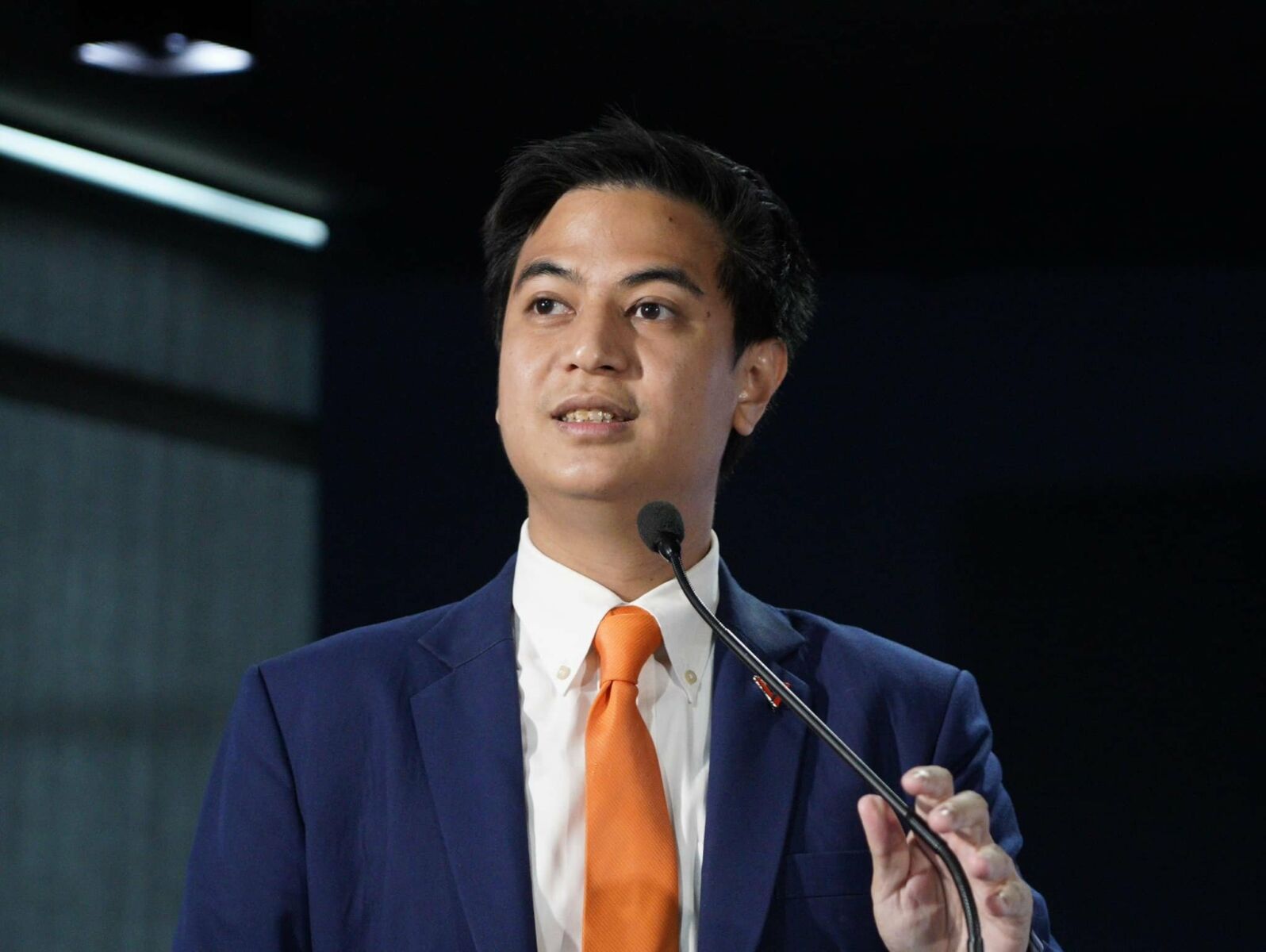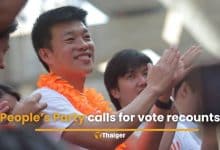People’s Party shuns protests, opts for Parliamentary reform

Thailand’s main opposition group, the People’s Party (PP), has decided not to engage in the upcoming anti-government protests orchestrated by former protest leader Sondhi Limthongkul. Instead, PP is committed to operating within the Parliamentary system to fulfil its role as a political entity.
Parit Wacharasindhu, spokesperson for the People’s Party, stated yesterday, November 27, that the party would prioritise addressing governmental issues through established Parliamentary channels.
The party plans to scrutinise several key issues, including the justice administration process, the Khao Kradong land controversy, and the 2001 Memorandum of Understanding (MoU) on joint development in the Gulf of Thailand, signed by Thailand and Cambodia.
Parit emphasised the party’s dedication to pushing for reforms by proposing bills or legal amendments, many of which have already been approved by Parliament. This statement came in response to comments by Nattawut Saikuar, an adviser to the prime minister, who suggested that PP supporters might participate in the planned protests.
Parit dismissed these comments as speculative, expressing uncertainty about their basis. Nonetheless, he affirmed that the party supports the public’s right to free expression, provided it aligns with democratic principles.
“The party has no intention to whip up political movements outside Parliament… We’re determined to work within the system to keep the government in check and advocate for change.”
Possible escalations
Sondhi, the previous leader of the now-defunct People’s Alliance for Democracy (PAD), recently announced plans to conduct regular activities in the coming year. This announcement has sparked concerns among some observers, who fear these activities could lead to mass demonstrations against the Pheu Thai-led government, possibly escalating into a power seizure.
Nattawut noted that historical protests against the Thai Rak Thai-led government and the Pheu Thai administration resulted in the coups of 2006 and 2014.
Chousak Sirinil, minister of the PM’s Office, urged the public yesterday to reflect on the implications of past yellow-shirt protests and coups, highlighting them as critical lessons for the nation. He remarked that these events brought about political instability, hindering the country’s development.
Chousak further mentioned that no current conditions exist to incite mass protests, and clarified that no negotiations under the 2001 MoU are underway. He stressed that any outcomes from such talks would require parliamentary review and approval.
“Such a crisis is way behind us, and I don’t want the country to go back to that point.”
Chousak also dismissed any speculation that the Paetongtarn Shinawatra administration would be short-lived.
Paiboon Nititawan, secretary-general of the Palang Pracharath Party (PPRP), cautioned the government not to mishandle sensitive issues like charter amendments and the referendum bill, which are contentious topics.
Paiboon’s comments followed Chousak’s remarks that the waiting period for the referendum bill could be shortened if categorised as a finance-related law after the Senate recently supported retaining the double majority rule necessary for passing a charter amendment referendum.
The House is expected to favour a simple majority when the bill returns for a vote, as it has supported such a change previously. This would trigger a 180-day cooling-off period before the bill’s passage.
However, if deemed a finance law, the suspension would only last ten days instead of 180 days.
Paiboon urged the government to honour House regulations and the House Speaker’s decision that the referendum bill is not a finance bill. He also concurred with some analysts’ opinions that the Paetongtarn government might face challenges in sustaining its administration for a year, reported Bangkok Post.
Latest Thailand News
Follow The Thaiger on Google News:


























